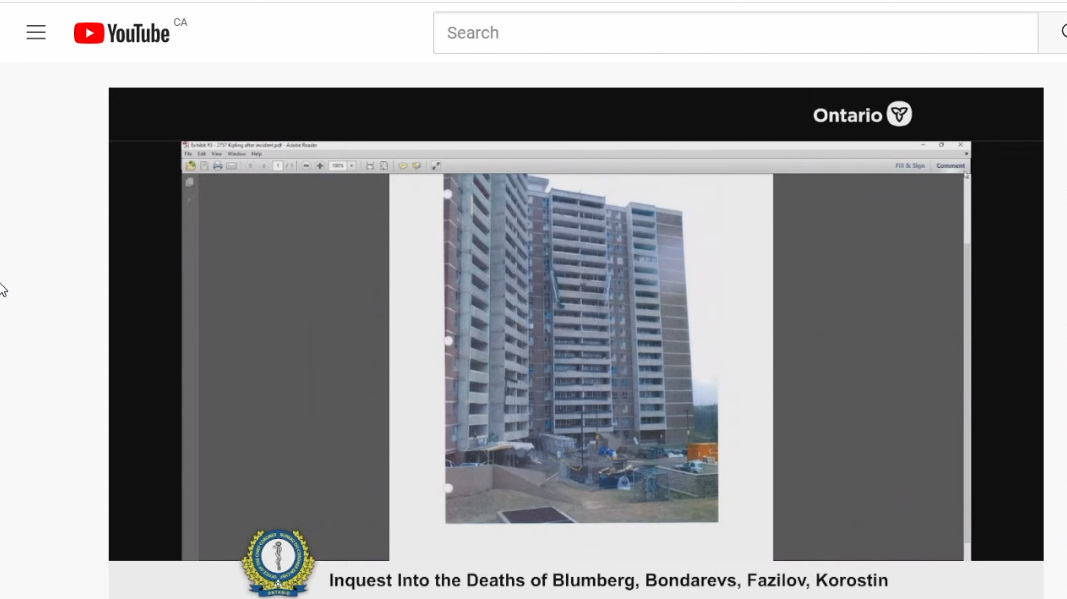Virtual proceedings for the Ontario courtrooms and coroner’s inquests could continue after the pandemic.
Jai Dhar, a lawyer for the Ontario Coroner’s office, said the effectiveness of virtual courtrooms means they could go beyond being just a pandemic adaptation.
“We’ve been in this world for two years, and it seems like there are so many aspects of our lives that we are going to perceive virtually. Inquests will be one of them in one way or another,” he said.
Coroner inquiries have been conducted virtually in different formats since May 2020 because of the COVID-19 pandemic. The Ontario government announced in February it would be expanding video access to court hearings, spending $65 million for computers and equipment, training, internet bandwidth, and audio-video equipment.
In the press statement, Attorney General Doug Downey said the government “will ensure video and audio hearings are available in every region, including in more rural, northern and Indigenous communities.”
Criminal trials have been virtual since March 2020, with more than 3.2 million virtual or hybrid hearings being held. The new equipment is part of the province’s Justice Accelerated Strategy to reduce the need for in-person proceedings and improve digital access.
Dhar said most of the coroner’s inquests have been online save special circumstances that required them to be in person.
“If it’s an inquest where somebody’s credibility is really being in question, then that may be something that’s more appropriate to do in person,” he said.
Dhar was recently the counsel for Dr John Carlisle at the inquest looking into the 2009 deaths of four men in a construction accident. The victims fell to their deaths when a swing stage they were on collapsed at a Kipling Avenue apartment south of Steele Avenue. An investigation found the swing stage was faulty and that there were only two lifelines available for six people.
The inquest was announced in 2019 due to 10 years of trials, appeals, and litigation but the COVID-19 pandemic delayed it until Jan 31 2022. The pandemic and the length of time since the original incident, the coroner’s office decided to hold the hearing as soon as possible. The virtual inquest connected the participants and displayed exhibits on screen.
For Dhar, this has been one of the main advantages of the remote inquests.
“You really have to have things better organized and planned out than you already did in the past but beyond that it’s we’ve found it very effective,” he said.
The coroner’s inquests are live-streamed on a dedicated Youtube channel. It makes the proceedings even more accessible to the public, Dhar said.
“We found it makes it much easier for the public to participate, to be able to see what’s going on.” he said. “Inquests are public so we have an obligation to ensure that the public has access, and can view an inquest.”
Dhar said there were pros and cons to the remote format. The presiding coroner had to give more breaks because of the screen time, and staff had to ensure everyone had the necessary equipment.
“Virtually, the challenge with inquests is the jury, because we have to make sure that the juries have the appropriate technology and have access to the Internet,” he said. “The way we’ve dealt with it was by ensuring that we provide the equipment that the jurors are using.”
However, Dhar says these haven’t been big issues compared to the upsides. He said it was easier to get witnesses and experts involved when they just had to connect virtually. It also made sharing evidence and questioning the experts easier.
“You certainly have an ability to to really focus in on the evidence in a way that actually is a little bit more concentrated than when you’re in person,” he said.
Dhar said while there were initially worries about security from everyone being in their own room, it turned out not to be a problem.
“A lot of those concerns that were in the front of our minds, of everybody’s minds, at the beginning of the pandemic, seem like they haven’t been realized,” he said. “Very contentious criminal trials have gone ahead virtually with people testifying virtually.”

